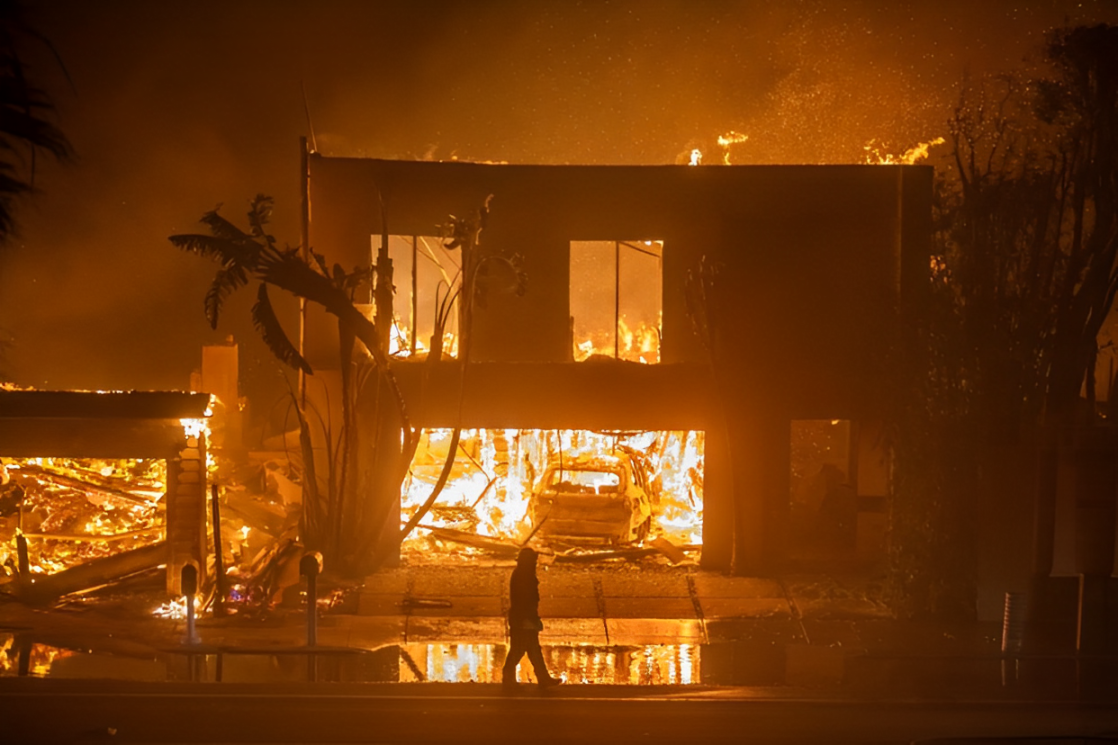magine this scenario: you’ve been eagerly awaiting a trip to Los Angeles, meticulously planned months in advance, only to find out that devastating wildfires are sweeping through parts of California.
Your flight to Los Angeles International Airport (LAX) is still on schedule, and your rental host assures you their property is in an unaffected area. However, the thought of enjoying a vacation amidst such chaos feels unsettling.
Canceling your trip might seem like the best option, but unless you’ve secured a specific type of travel insurance, you may still be on the hook for nonrefundable costs. This is where Cancel-For-Any-Reason (CFAR) travel insurance becomes a game-changer.
What is CFAR Travel Insurance?
CFAR insurance, as the name suggests, allows travelers to cancel their plans and recover a portion of their expenses — typically between 50% and 75% — without needing to meet traditional travel insurance criteria, such as illness, injury, or an uninhabitable destination.
It’s an upgrade to standard travel insurance, but it comes at a price: approximately 50% more than the cost of a regular policy.
For example, a standard travel insurance policy costing $350 for a $5,000 trip might rise to $525 with the CFAR add-on.
While that may seem steep, the flexibility it offers is increasingly appealing in a world where natural disasters, such as wildfires, hurricanes, and even pandemics, are becoming more frequent.
The Growing Popularity of CFAR Policies
CFAR insurance was once a niche product, but its popularity has grown significantly. According to InsureMyTrip, only 2% of its policies included CFAR coverage in 2019.
By 2024, that figure climbed to 6.7%, and during the peak of COVID-19 concerns in 2021, it reached 10%. Similarly, SquareMouth, another travel insurance marketplace, reported an 8.1% year-over-year increase in CFAR policy sales.
The California wildfire crisis exemplifies why CFAR coverage is becoming more attractive.
While travelers may technically still visit the region, the circumstances — including poor air quality and a heightened sense of danger — might deter many from going.
Why Traditional Insurance May Not Be Enough
Standard travel insurance policies typically cover cancellations due to specific events like severe illness, injury, or uninhabitable accommodations.
However, they don’t account for subjective reasons, such as a loss of enjoyment or a general desire to avoid a region due to ongoing natural disasters.
“If you’re traveling to Disneyland for fun, you might ask yourself, ‘Is it fun to be in L.A. right now?’” said John Rose, Chief Risk and Security Officer at Altour, a business travel firm.
The answer to that question often doesn’t align with traditional policy coverage, making CFAR insurance an appealing alternative.
When CFAR Insurance Makes Sense
CFAR coverage doesn’t solve every problem. Policies often require travelers to cancel at least 48 hours before departure and may only reimburse a portion of expenses.
Moreover, CFAR policies cannot be purchased after a disaster has been declared, as the risk is deemed too high for insurers.
Despite these limitations, CFAR coverage provides peace of mind in uncertain situations.
For instance, during the recent California wildfires, CFAR insurance would have allowed travelers to cancel their trips and recover some costs even if their accommodations and flights were unaffected.
Alternatives to CFAR Insurance
Travelers without CFAR insurance may still have options to recoup some costs. Airline and hotel cancellation policies often provide flexibility, particularly in the wake of natural disasters.
Additionally, many credit cards offer built-in travel insurance if the trip is booked using that card.
However, these benefits are subject to fine-print limitations and may not cover situations like a loss of enjoyment or personal preference.
Climate Change and Future Travel Considerations

As natural disasters become more frequent and severe due to climate change, travel companies may tighten their cancellation policies.
Hotels, for instance, have already shifted from same-day cancellation policies to requiring 24- to 72-hour notice to avoid penalties.
This shift places a greater burden on travelers to protect themselves through insurance.
Christina Tunnah, a general manager at travel-insurance provider World Nomads, predicts a continued rise in travel insurance inquiries during high-profile disasters like the California wildfires. “The generosity among travel-industry companies might be more diminished,” she said, emphasizing the importance of securing coverage.
Is CFAR Insurance Worth It?
Ultimately, deciding whether to invest in CFAR insurance depends on individual priorities. Some travelers might value the peace of mind it offers, while others might prefer to allocate those funds toward upgrading their accommodations or activities.
Robert Gallagher, President of the U.S. Travel Insurance Association, summed it up best: “Do I want to upgrade my hotel room or my travel insurance?” It’s a question every traveler must answer for themselves, especially in an era of increasing uncertainty.
For those planning trips to disaster-prone areas, however, CFAR insurance might just be the essential add-on that ensures your investment is protected — no matter what.







Leave a Comment